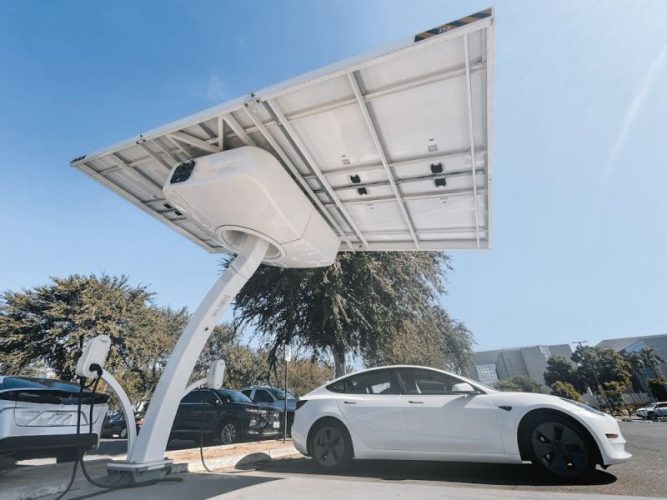Only Hydrogen Vehicles on Your City Streets: The Challenges and the Possibilities

Categories :
Here’s an interesting fact to start: it is predicted that by 2030, we could see around 13 million hydrogen fuel cell vehicles globally. These are not going to be concept cars, but rather actual, fully-functioning vehicles.
Now, imagine stepping out of your house, and instead of the familiar growl of gas engines, all you hear is a soft hum. This is a reality that might be possible if there were only hydrogen-powered vehicles on the roads. A futuristic idea, right?
However, this isn’t some distant sci-fi dream, as the fact mentioned at the start of this article suggests. Thus, it could be the reality of your city streets sooner than you think.
However, before celebrating the possible end of gas-powered cars, let’s explore the challenges and possibilities that come with hydrogen vehicles taking over our streets.
The Challenge of Hydrogen Storage
According to H2MOF, perhaps the greatest challenge facing the adoption of the hydrogen economy is working out safe and efficient hydrogen storage solutions. That’s because storing hydrogen is not as simple as filling up a tank with gasoline. Hydrogen storage is difficult because:
- Hydrogen takes up a lot of space, even when compressed.
- Hydrogen needs to be stored at very high pressures
- Hydrogen storage solutions need to be compact, efficient, and safe, which is easier said than done.
Now, a question: Can't we just store hydrogen like any other gas?
Well, if you plan on storing hydrogen, you can’t just go about cramming it into a tank. Hydrogen storage systems aren’t your usual storage tanks; you must ensure that the gas remains stable and doesn’t leak over time.
Also, here’s the tricky part: these hydrogen storage systems must also be light enough to be practical for vehicles. However, the tanks must also be strong enough to handle high pressures. How do you deal with this hydrogen storage-related dilemma?
Storing hydrogen requires a delicate balance between efficiency and practicality, especially for vehicles.
Working Out Practical Hydrogen Storage Systems
Solid-state hydrogen storage is one of the most promising solutions on the horizon. Instead of relying on high-pressure tanks, solid-state storage uses materials that can absorb and release hydrogen, like a sponge.
Basically, you’ll no longer be driving around with a pressurized tank of gas in your car. Instead, the vehicle will be equipped with a sleek, solid-state hydrogen storage system that safely holds the fuel you need.
It’s like having a mini science lab under the hood, working hard to store hydrogen and release it as needed. This technology could revolutionize how we think about storing hydrogen, making it safer and more efficient.
Hydrogen Fuel Stations
In a city with hydrogen vehicles, you’ll of course need hydrogen refueling stations. However, these are not your typical gas stations. Hydrogen fuel stations need to be equipped with specialized equipment to store and dispense hydrogen safely.
Hence, what we’re looking at is a massive infrastructure overhaul, one that comes with its own set of challenges.
First off, there’s the issue of location; after all, hydrogen fuel stations can’t just pop up on every corner like your local gas station. They require careful planning and placement to ensure they’re accessible to everyone.
Plus, building these stations isn’t cheap. The equipment needed to store hydrogen and fill vehicles is expensive, and the cost of setting up a network of stations can add up. Then there’s the matter of safety as hydrogen is highly flammable.
You might think that today’s technology makes it safer than ever, and you’d probably be right. Yet, you have to understand that we’re yet to master hydrogen power, so there’s still a need for strict safety protocols.
The Possibilities: Cleaner, Greener Streets
The idea of hydrogen-powered cars is a simple one – a cleaner earth. After all, with hydrogen powering your car, you don’t get any carbon emissions. All you get is vapor; good old water vapor which can’t harm the environment.
To add to this, you might even say that streets full of just hydrogen vehicles can lead to a more sustainable transportation system. Also, as we make advancements in hydrogen storage tech, these vehicles could become more efficient and reliable over time.
The Road Ahead for Hydrogen-Powered Vehicles
Of course, transitioning to a city full of hydrogen vehicles isn’t without its bumps in the road. There are still plenty of challenges to overcome, from refining hydrogen storage systems to expanding the network of hydrogen fuel stations.
However, with the right investments and innovations, these hurdles toward a hydrogen-powered transportation system can be cleared with a bit of ease.
Who knows? If things go right, one day, you might find yourself cruising through the city in a hydrogen-powered car.
Citiesabc was created by a team of global industry leaders, academics and experts to create new solutions, resources, rankings and connections for the world’s top cities and populations.










